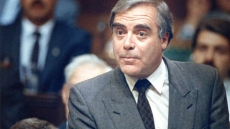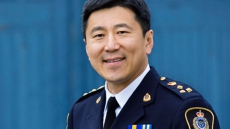Two military watchdogs are opening a joint investigation into how ill and injured soldiers are treated during their transition to civilian life.
Veterans ombudsman Guy Parent and Canadian Forces ombudsman Gary Walbourne will join forces to look at a system that has been the subject of thousands of complaints, both formal and informal.
Walbourne says over half of the 1,500 complaints his office received last year related to end-of-career issues, including transition.
The two men will focus their investigation on the duplication that exists between National Defence and Veterans Affairs.
"There is an arduous process that goes on for months," Walbourne said. "There's doctor's visits. There's forms to be filled out. There's the CF-98 (form), which talks about the injury and how it happened.
"All that is done and once that is done, they start a new process the next day when the person is released. There's an 18-page application to get into the (veterans) system."
Many soldiers, wounded in Afghanistan and too ill to continue serving, have found upon release that the veterans bureaucracy requires them to validate their condition by visiting different doctors.
In some instances, they have been denied benefits for injuries that cost them their careers and Walbourne says this is one of the inequities that will be covered in the investigation.
"Why are there two processes?"Walbourne asked. "Why can't the exit process be the automatic entrance process?"
Because of overlap, injured veterans end up having two case managers during their transition — one from each department. The House of Commons veterans committee heard complaints about the quality of case workers during its recent study of the legislation that governs benefits for ex-soldiers.
"Transition is a time of great adjustment in the lives of Canadian Armed Forces members and veterans," said Parent said. "We need to ensure that their transition is as seamless as possible with clear information and transparent communication."
Last year, veterans and advocates complained publicly about the number of soldiers who wanted to continue serving but were released from the military on medical grounds, many of them with post-traumatic stress.
Defence Minister Rob Nicholson insisted under questioning in the House of Commons that everything was being done to prepare members for life in the civilian world, including career counselling and access to job training.
But Parent told the Commons committee last year the many soldiers find it difficult to get access to education grants if they choose a career that's unrelated to the skills they acquired in the military.
The committee, in a report released in June, said the government must work harder to support not only the soldiers, but their families through the process of re-entering civilian life.
A spokeswoman for Veterans Affairs Minister Julian Fantino said the Conservative government supports the investigation.
"Like the veterans ombudsman and National Defence ombudsman, our government believes in the importance of providing a continuum of service to veterans," said Ashlee Smith in an email.
Earlier this year, Fantino asked his department to conduct an independent, third-party review of the Veterans Affairs Transformation Agenda, which is a five-year program intended to modernize overall service delivery and make it "hassle-free," as one official described it during 2012 testimony to Parliament.
The department, last week, awarded a contract for that study.
Walbourne said transition is a complex topic and the multi-part investigation will tackle each issue one at time over the next 15 to 18 months. Findings will be released in a series of interim reports.
On average 5,000 to 6,000 full-time military members are released annually.






